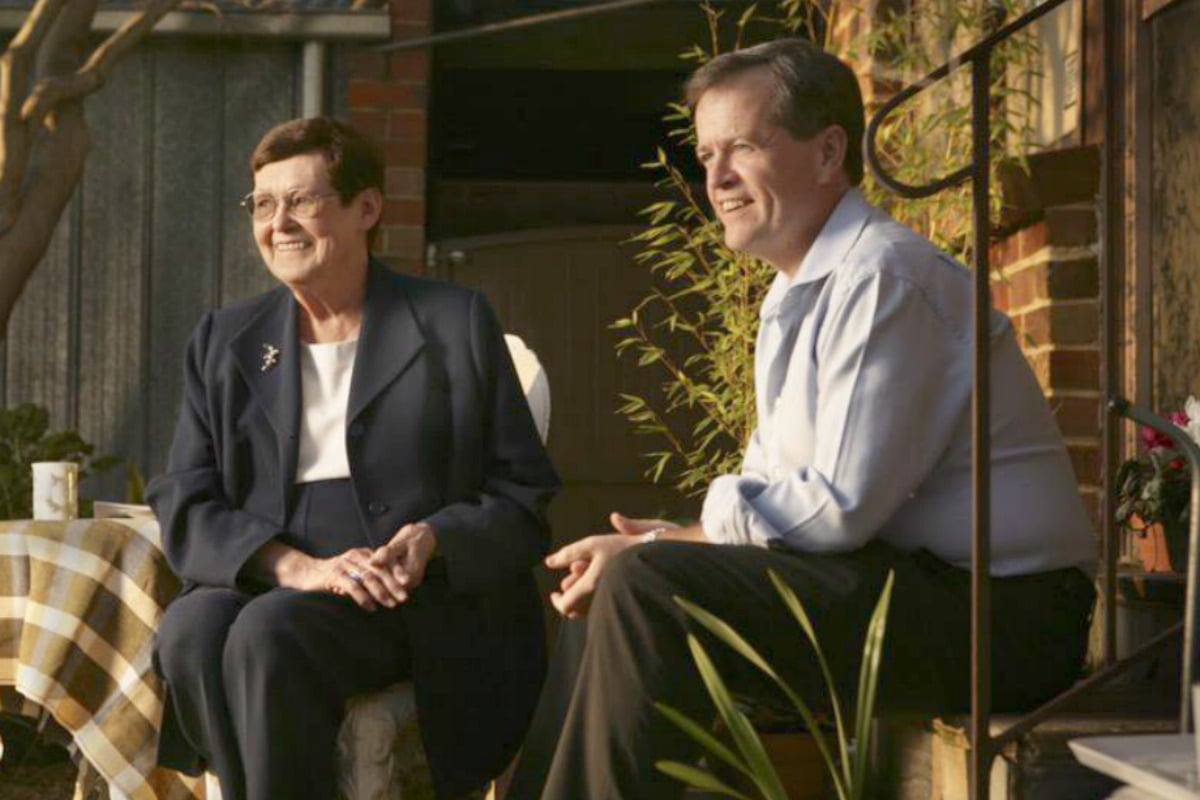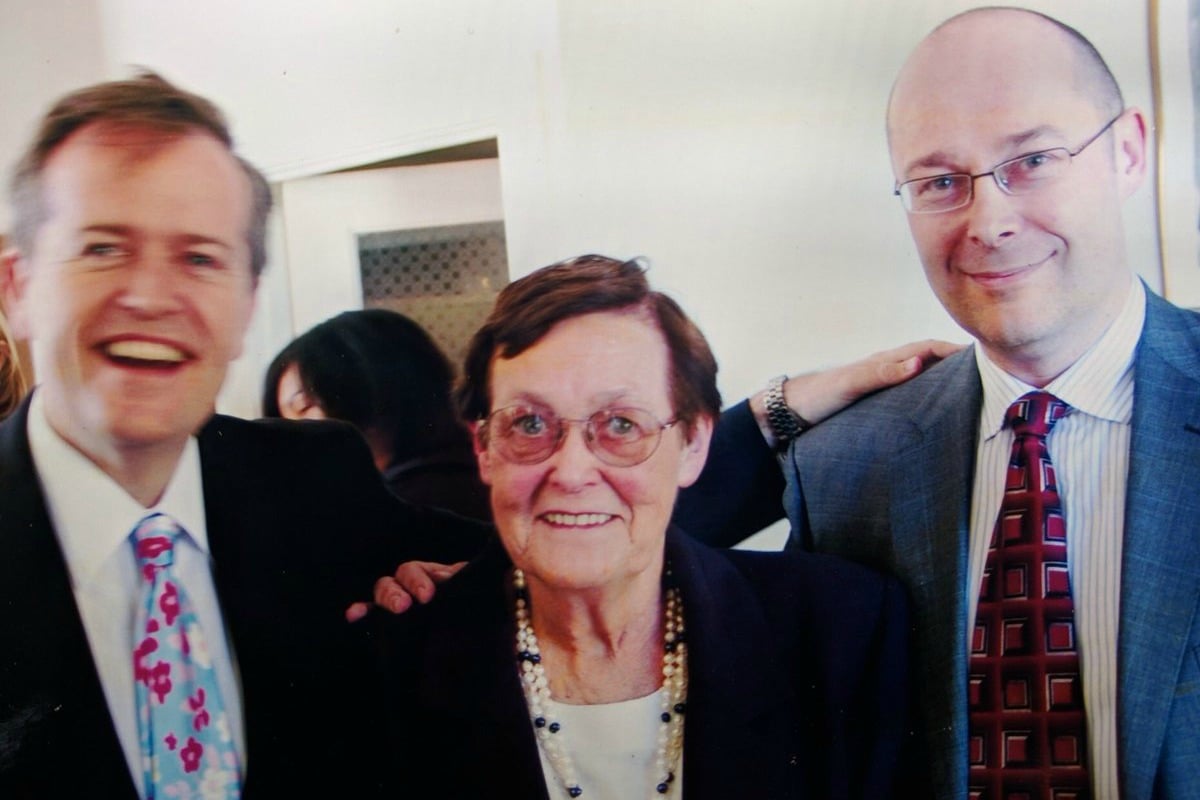
When Ann Shorten graduated from Monash University in 1985, her twins sons Bill and Robert had just entered their first year at the same faculty.
Ann, then in her 50s, received first class honours, winning the Supreme Court Prize and the Flos Greig Memorial Prize.
It was the realisation of a lifelong dream, one she’d been forced to push aside for decades.
On Monday night, her son and Labor leader Bill Shorten spoke about his mother on ABC’s Q&A. It was her experience that drove his political career, the 51-year-old said.


Top Comments
I went to a GPS school in Sydney, so I can totally relate to the struggle street of a Xavier private school boy like Bill. It’s hard growing up as a boy with two professional working parents wondering if you’ll ever get that new French foil for fencing class.
I went to a private school. In order to pay the fees, my mother took a cleaning job - often employed by many of the very well-off families who sent their girls to the school I attended. Not everyone who is afforded the privilege of a private education comes from a position of comfortable wealth. My parents made sacrifices for my education and for that I'll be eternally grateful.
His mother was a practising barrister, I doubt she cleaned floors between briefs to make ends meet.
The facts simply don’t support his tale in this case.
Because you're ignoring all the facts.
She only was able to study law at uni at 50 years of age, and once registered only had a short career of 5 years and only given 9 cases due to prejudice because of her age.
Watch Bill's speech at the VIC Women's Forum and Q&A appearance and you'll appreciate the message he was conveying. The hatchet job by News Corp completely missed the point (or intentionally misled their readers).
She was a teacher while he was at school. Check your facts
Bill has been a little disingenuous about his mother. Not mentioning her great achievements, and making it seem as though she was a struggling, working class single mother. Even his wiki page starts with the following "Shorten's mother was a university academic and lawyer who completed a doctorate at Monash University and ended her career there as a senior lecturer in education. She completed a law degree later in life and practised as a barrister for six years"
According to the wiki page, Bill Shorten went to Xavier College in Melbourne, an extremely prestigious, elite college, where he apparently became a champion fencer!
Doesn't exactly gel with his working class man schtick...
Yeah, because being forced to give up pursuing a career to put your family first isn't a big deal... you can always go back in your sixties and follow your dream then. What you're glossing over - rather conveniently - is the sacrifice his Mum made IN THE PRIME AND MAJORITY OF HER WORKING LIFE to put him through school and to give him all the advantage that she didn't have. Imagine what she could have achieved professionally if she'd become a lawyer in her twenties, not her sixties.
She achieved these things after years of work. I don't think he was portraying her as a single struggling mother. But in the beginning she didn't have money and couldn't afford her dream, although clearly she was smart enough. She made it work for her and because of the education she received she became very successful.
She made a choice to have children. Who is primarily responsible for that choice?
Actually her choice to study teaching instead of law wasn't about kids. She couldn't afford to study law, she got a scholarship to study teaching.